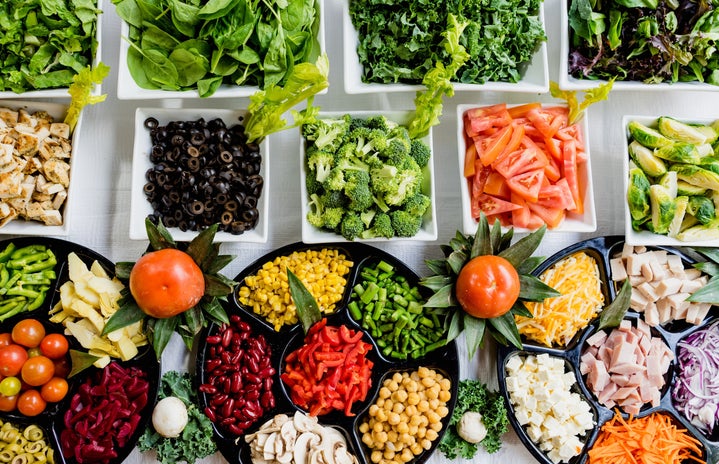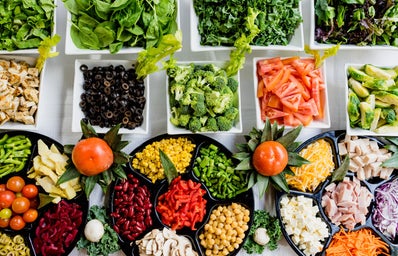Last week, we talked about how else you could keep yourself alive with proper food safety. Now we’re moving onto actually acquiring food and getting the most out of your supplies. For the sake of this article, I’m assuming that you are starting out with a completely empty cabinet with zero food in it.
1. Establish your baseline.
Take a moment to sit down and write down a list of the minimum food items you need.
These are the most basic foods you can use to create all kinds of other meals. They’re the essentials. An example list that I use is as follows: eggs, flour, sugar, salt, pepper, garlic, milk, bread, rice, spaghetti, canned soup, and butter. Of course, this all varies, which is why you should take the time to do one yourself.
2. Take advantage of your surroundings.
No, I don’t mean you should forage for berries in the bushes outside your residence hall. Bring ziplocs to your dining hall.
I’m not saying you should take an entire meal with you, just small stuff. Like extra veggies from the salad bar, because unless you eat spinach every day, you don’t need those big bags they have in the grocery stores. This will save you on food waste and money down the road.
3. Read the ‘junk’ ads.
They may seem like too much paper that will not stop getting shoved into your mailbox, but they have a lot of good deals from local grocery stores and can have information about local deals, like free stuff or local businesses that don’t get as much publicity as larger places. You never know what you’ll find.
4. Sign up for store reward cards.
A lot of grocery stores have good deals that seem amazing, but in order to get them, you have to sign up for the store cards. Not to mention they may have all kinds of other cool bonus deals that you can exploit.
5. Be willing to reuse leftovers.
Those chicken fingers you didn’t finish? They can be added to pasta to make your half a meal a meal with two food groups. Those leftover French Fries? They can be turned into all kinds of stuff.
6. Use a calculator at the grocery store.
I, personally, have a spending cap on my debit card so I can’t spend more than that. Though this has been a pain in many aspects when it comes to other purchases, it has made me a more conscious shopper. Whenever I go out, I add up each and every item I put in my cart to make sure that I can afford everything I’m about to own. This also makes you more conscious of how much food really costs.
Next week, keep an eye out for the next edition of Cooking for Yourself where I will talk about essential tools outside of basic silverware!


